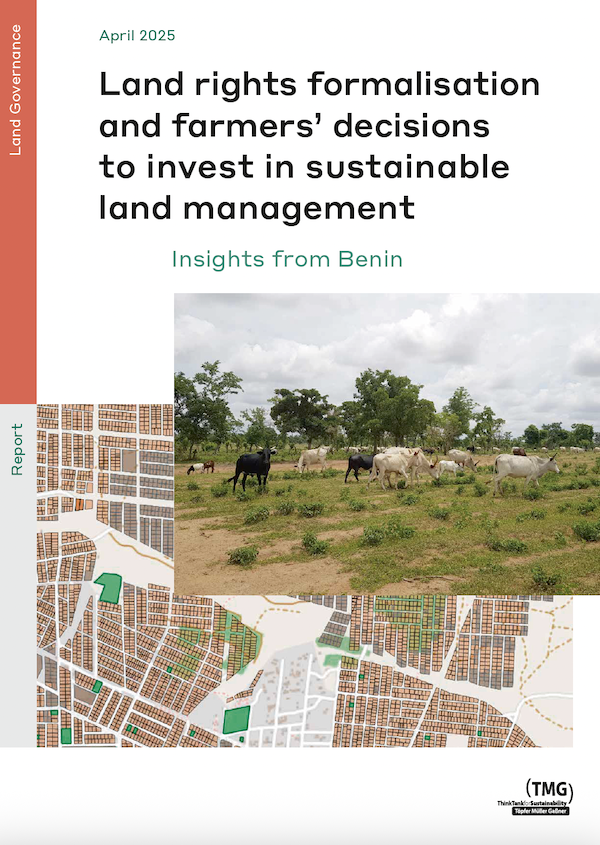Sustainable land management (SLM) plays a pivotal role in land restoration and in achieving Land Degradation Neutrality. Despite steady efforts by governments and international development agencies to promote SLM, its rate of adoption remains low. While many reports and articles have addressed constraints on the adoption and upscaling of SLM, few have made the connection between land tenure security, land restoration and SLM, though there has been greater focus on this nexus since the UNCCD Decision 26 / COP 14 on land tenure.
Unfortunately, many policymakers continue to mistakenly reduce land tenure security to land tenure formalisation. While the latter may contribute to tenure security, it is not the only means and should not be the predominant approach. Legitimate tenure rights provide tenure security to the vast majority of farmers living in rural areas. It is therefore up to governments and development partners to recognise and protect those rights in ways that reflect communities’ expectations and perspectives.
Building on data from the Responsible Land Policy (ProPFR) project1 implemented by GIZ in Benin to secure community land rights, we examine the role of tenure formalisation in farmers’ decisions to implement SLM practices. The research was conducted in Gounin, located in the commune of N’dali, Benin. This village participated in ProPFR. The findings of our study demonstrate that farmers’ decisions to implement SLM practices on their land did not depend on the possession of a land certificate. More than 89 percent of the farmers surveyed for our study, regardless of gender, stated that their decision to implement SLM was not related to the possession of a land certificate or any formal document to claim ownership over farmlands.
All respondents confirmed that they implemented one or several SLM practices on their farms, including crop rotation (43.9 %), soya cultivation (16.75 %), crop residue management (7.9 %), pigeon pea planting (7 %), and the use of cattle dung as manure (5.3 %). Ninety-one percent of those who perceived their land tenure to be insecure and raised concerns about implementing agroforestry practices were women, who typically lease land or access it through their husbands.
Moreover, 97 percent of respondents, regardless of gender, reported that the land they cultivate belongs either to them or their families, emphasising a high level of trust and confidence in local societal values and customary rules on land governance. The land formalisation process relies on the so-called “contradictory land survey,” which involves village leaders and neighbours. This survey confirms or informs the customary rights of any applicant for a land certificate and reinforces the legitimacy of customary values and institutions. Our findings showed that farmers are not keen to invest resources to obtain the land certificate (Attestation de Détention Coutumière), despite recognising multiple potential benefits of doing so (social protection, access to credit, revenue opportunities, safe transfer of rights to children or family members, etc.). While some farmers argue that the formalisation process is cumbersome and costly, we found that farmers are mainly reluctant to invest scarce financial resources in the formalization process because customary rules and institutions give them a sufficient sense of tenure security to continue working on their land and investing in SLM, despite risks of conflict and dispossession by the state.


